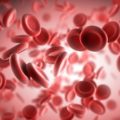
While asthma, food and seasonal allergies tend to get a lot of coverage, the truth is that there is another trigger that people suffer from. In many cases, the implications can be dangerous. Allergic reactions to medications are a common issue, and while they can be mild – like causing nausea or stuffy nose – some can cause life-threatening symptoms like anaphylaxis.
For a long while, it was unclear why certain people had adverse reactions to various drugs, but now we might have some new insight. According to researchers at Johns Hopkins University School of Medicine in Baltimore, MD, one protein could be to blame.
Generally, receptors located on the outside of mast cells expose antibodies. These antibodies, in turn, act as warning signals to other parts of the body, triggering the receptors to release histamines which call immune cells to the affected area and create inflammation. In the study, this site-based inflammation looked like allergic reaction to the researchers, but what they found was that no antibodies were ever produced.
To learn more about the cause of these types of reactions, the researchers investigated the mast cell receptors of mice. Specifically, they were looking for which cells respond without antibodies in the rodent.
The team then "tested the receptor by putting it into lab-grown cells, and results showed that they reacted to drugs that provoke responses in mast cells," writes Marie Ellis in a post for Medical News Today. "Additionally, he found similar results for the previously identified human receptor. Next, to determine whether getting rid of the receptor would also get rid of the allergic reactions, the researchers disabled the gene for that specific receptor in mice and found that these mice did not display any of the drug allergy symptoms."
In pinpointing a specific receptor, the team is viably able to streamline the creation of drugs and other medications that will effectively treat patients that are affected by certain chemicals. According to the team of scientists, they can now move forward to develop compounds that block the receptor, which would help to prevent reactions and symptoms that are triggered but not antibody-producing.
This is good news for patients who suffer from various cancers, diabetes and HIV, as some of the most common treatments for these problems can cause reactions. Essentially, this research could help to reduce the amount or severity of drug side effects for people.
In order to best deal with your allergy symptoms – whether they are drug reactions, food or seasonal – be sure that you have the best possible treatment options available. If you are interested in learning more about some of the leading allergy control products, be sure to visit Allergy Be Gone online! For more information on how we can help, contact us today!









